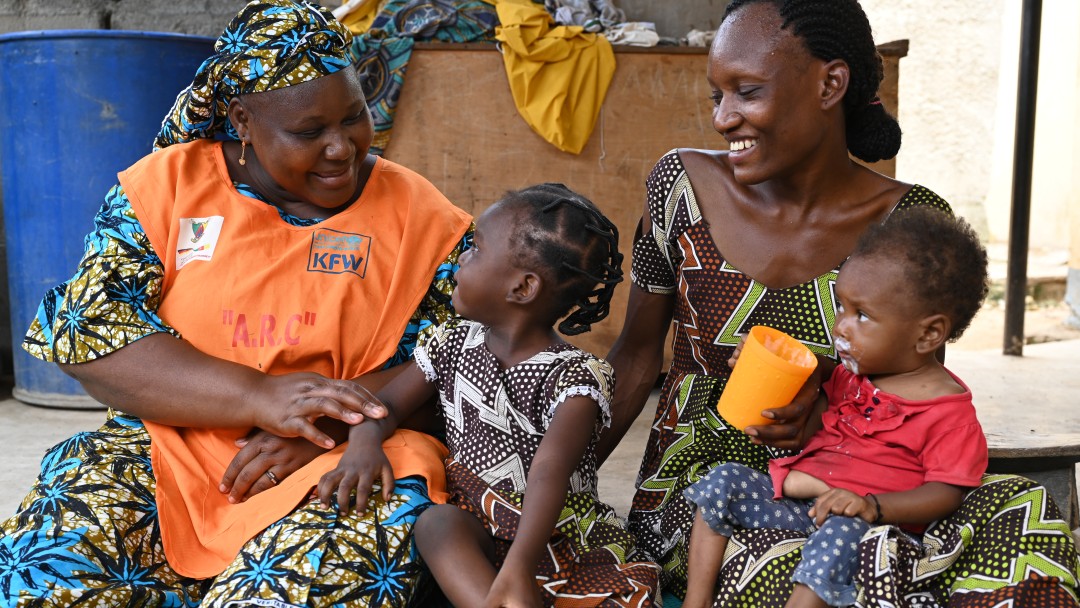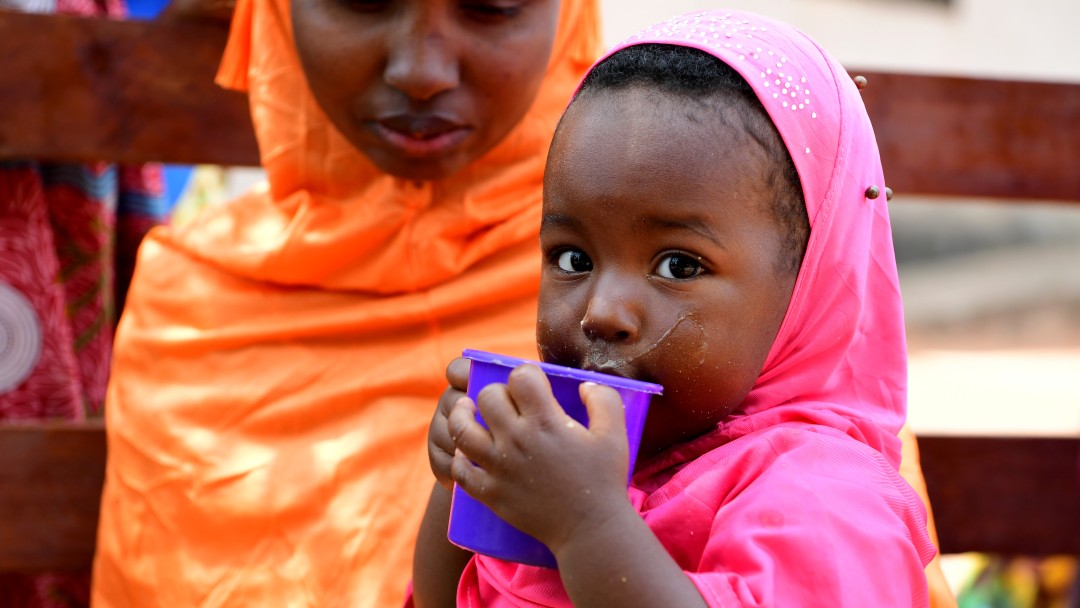News from 2023-07-10 / KfW Development Bank
Strong women, strong children: KfW supports refugees in Cameroon
For more than 30 years, UN World Population Day on 11 July has been a reminder of the challenge posed by continuing global population growth.

Last year, the world population crossed the threshold of 8 billion people for the first time. In many parts of the world, population growth has already lost momentum. In large parts of sub-Saharan Africa, however, the birth rate continues to average up to five children per woman. High population growth can exacerbate existing hardships in fragile regions with inadequate supplies.
Due to political instability in Nigeria, the Central African Republic and Cameroon, over 1 million people have fled to the north and east of Cameroon in recent years. As a result of the flight movements, serious shortages have arisen in terms of food, clean drinking water and basic health care. Due to malnutrition, almost 40% of young children in the affected regions suffer from growth disorders. The maternal mortality rate is particularly high - every 35th woman dies during childbirth.
As part of the BMZ special initiative "Refugees and Host Countries", KfW Development Bank is financing a programme designed with UNICEF to strengthen children and women in Cameroonian communities affected by refugee movements.
The project is not limited to the short-term effect of eliminating current malnutrition, but strengthens the role of women with a second line of intervention - through improved access to self-determined family planning. By integrating these two lines of intervention, the project sustainably improves the health situation of women and increases the survival chances of children suffering from malnutrition.

The programme includes, among other things, nutritional counselling for young mothers and the provision of nutritional supplements. Medical care for young children is also an important part of the programme. In the first two years of the current project phase, around 90,000 acutely malnourished children were treated and food security was ensured for almost 290,000 more young children.
In the second line of intervention, young women are supported in self-determined family planning. Awareness-raising, education and work on existing taboos and values flank the provision of contraceptives. Here, too, the demand is high: among other things, through the establishment of eleven counselling centres, almost 90,000 women receive counselling on sexual and reproductive health and, if necessary, are supplied with contraceptives.
The innovative combination of the two lines of intervention has already proven very promising in the first years of the project. While the consequences of food shortages are addressed, young women and couples are strengthened in their self-determined planning through increased counselling and services on the topic of family planning. This is also intended to make a sustainable contribution to mitigating the increasing aggravation of the supply situation in families and the region.
KfW's cooperation with UNICEF to empower refugee women and children is expected to continue to play an important role in our engagement in Cameroon in the future. In this way, the knowledge gained in the first project phase can be used to further develop the approach in subsequent phases and also to duplicate it in other countries.

Share page
To share the content of this page with your network, click on one of the icons below.
Note on data protection: When you share content, your personal data is transferred to the selected network.
Data protection
Alternatively, you can also copy the short link: https://www.kfw-entwicklungsbank.de/s/enzBWrMC.C8FA
Copy link Link copied